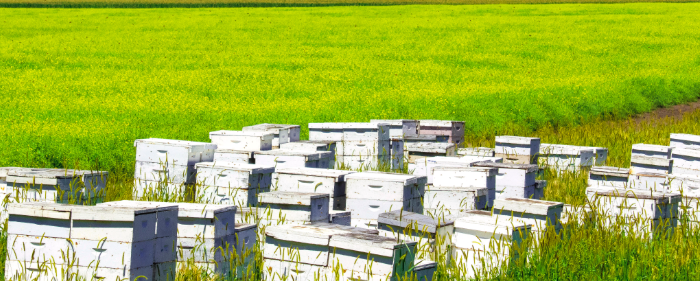
Save bees to preserve this free service it offers us: pollination. This is the key message of the “Apidays”, from June 14th to 16th. Beekeepers open their doors and expose themselves to explain their work and the benefits of industrious insects.
As part of the ninth edition of the Apidays, educational workshops, photo exhibitions, visits to beehives or extractions and tastings of honey will be offered in various French cities and in Monaco. The focus this year will be on “the role of bees in pollination, “ said Henri Clément, spokesperson for the French National Union of Apiculture ( Unaf ). For him, the general public still too often ignores the role played by pollinating insects , including bees, in agriculture .
“What is the connection between leeks, carrots , onions and bees? He asks. “To have these vegetables, you need seeds” and this is where bees intervene, as they do to pollinate fruits or protein crops (rapeseed, sunflower , etc.), explains Henri Clément.
“40% of invertebrate pollinators are threatened”
According to Unaf, “84% of species cultivated in Europe depend directly on pollinators and more particularly bees and 75% of crops depend on the activity of bees” . “The value of pollinator activity in the world in 2017 was 178.6 billion euros and in France 1.9 billion euros,” says the trade union. The United Nations Food and Agriculture Organization ( FAO ) and the European Union (EU) have also recently reiterated the essential role of bees in ensuring food security.
Bees suffer for several years from a high mortality rate, especially because of pesticides . More broadly, according to the UN, 40% of invertebrate pollinators – bees and butterflies in particular – are threatened with extinction worldwide.